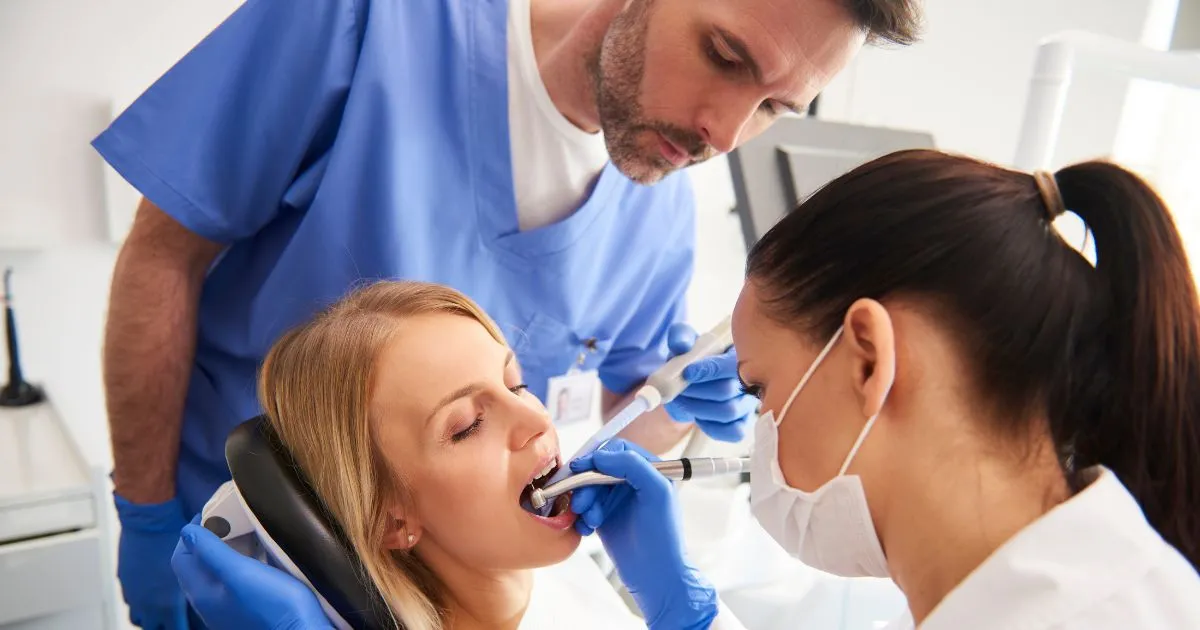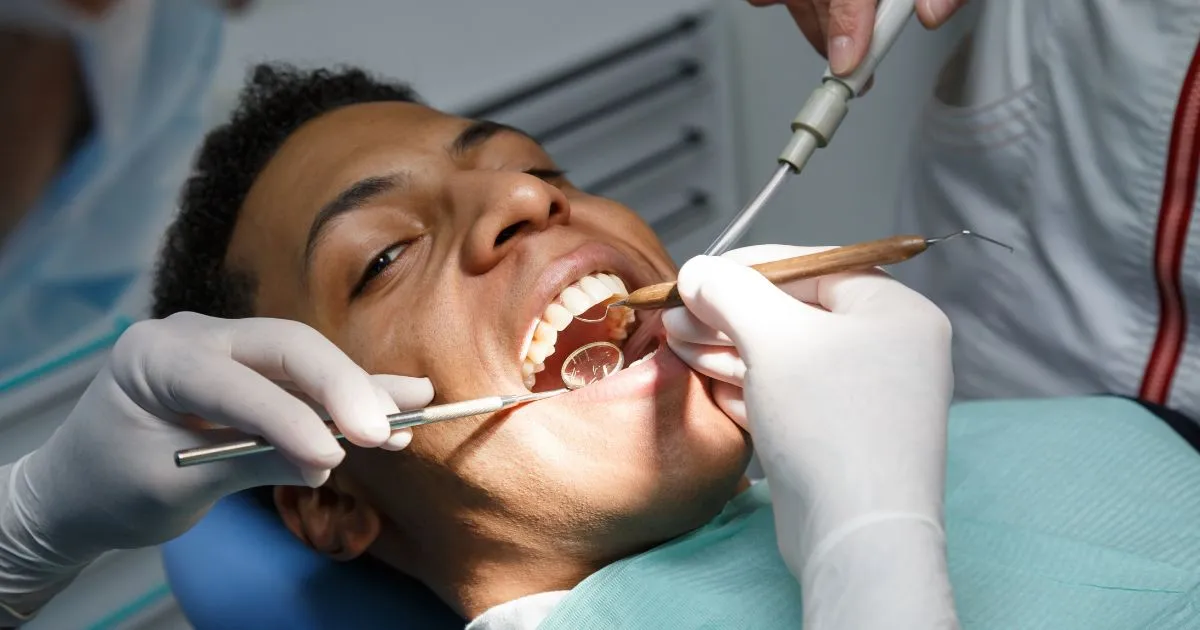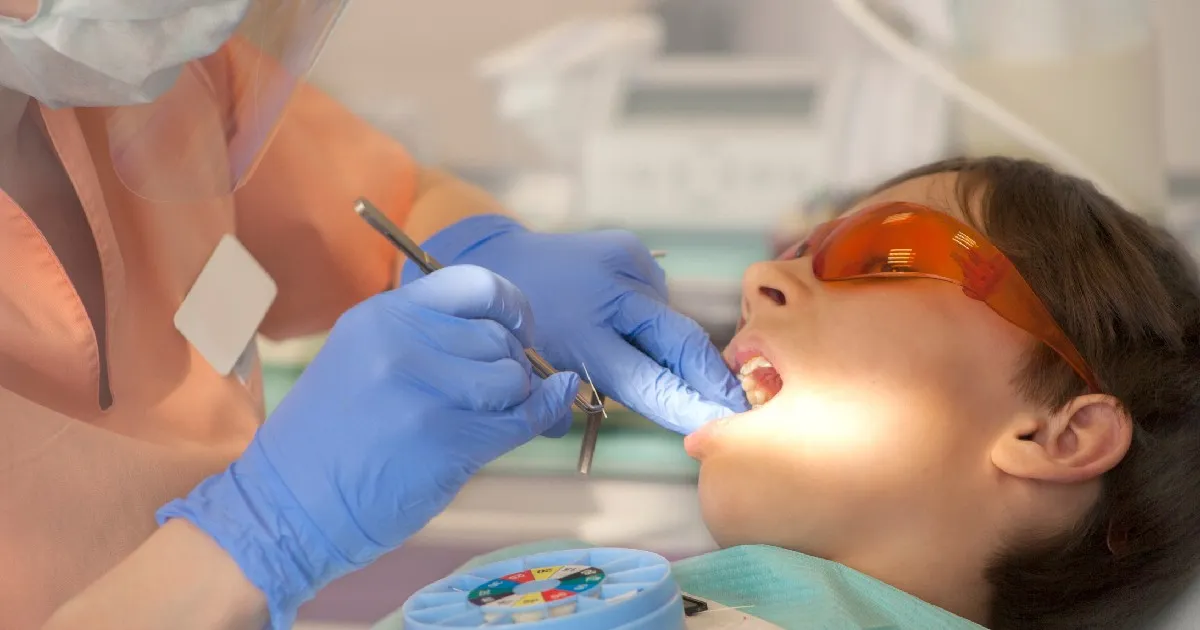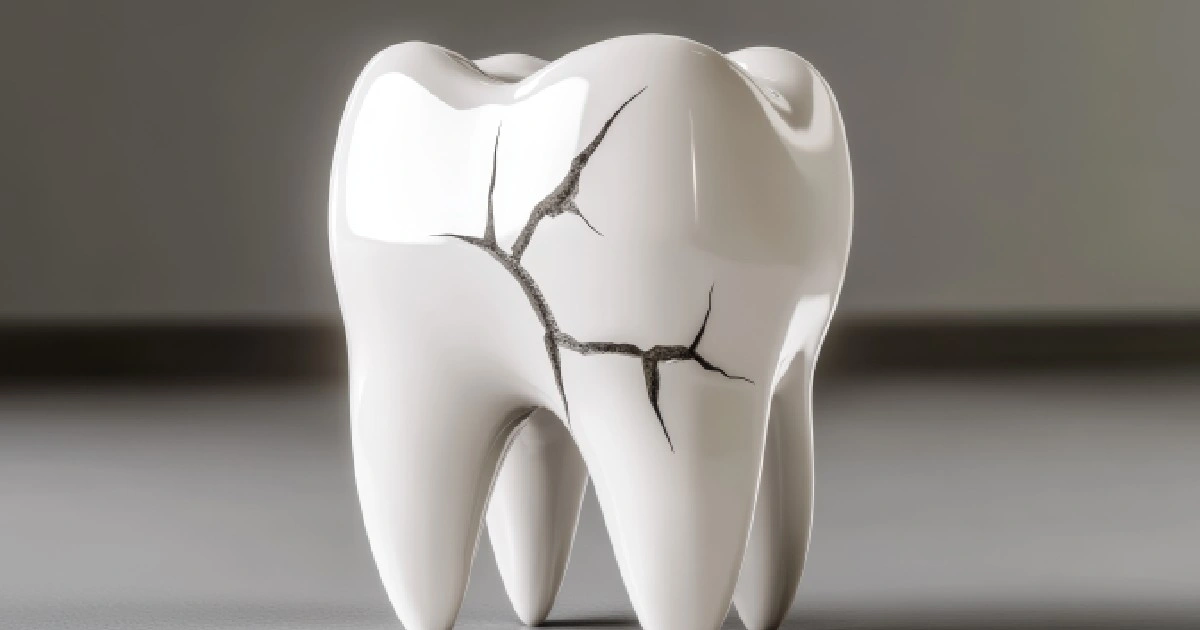Table of Contents
A child’s smile is one of the most precious things in the world, but what happens when an accident results in a dental injury? Whether it’s a fall at the playground, a collision during sports, or an unexpected impact, traumatic dental injuries can be alarming for both children and adults. However, how these injuries affect baby teeth versus permanent teeth can be very different.
Understanding the differences between baby teeth trauma and permanent teeth injury is crucial for responding correctly in an emergency and ensuring the best possible recovery. Parents often wonder if a knocked-out baby tooth requires the same urgency as a permanent one or whether a tooth fracture in children needs immediate care.
Knowing what steps to take can make all the difference. Keep reading to learn when to seek treatment, how to prevent complications, and what to do in a dental emergency.
Baby Teeth and Permanent Teeth: The Difference
Baby teeth (primary teeth) are placeholders for the permanent teeth that grow beneath them. They are smaller, have thinner enamel, and are naturally designed to fall out at a particular stage of childhood. While they may not last forever, they play a critical role in a child’s speech development, chewing function, and oral health.
Permanent teeth need to last a lifetime. Any damage to them can have long-term consequences that require specialized dental treatment to repair or preserve their function. Unlike baby teeth, permanent teeth do not regenerate, meaning that injuries can lead to complications such as infection, misalignment, or even the need for root canal therapy.
How Trauma Affects Baby Teeth
It might seem alarming when an accident makes a child’s teeth appear earlier than expected. But in many cases, it does not require the same emergency treatment as a knocked-out permanent tooth. Baby teeth are not re-implanted because doing so could harm the underlying adult tooth that is still developing.
Instead, a dentist will assess whether the premature loss of the tooth could affect speech, eating habits, or alignment of the permanent teeth. In some cases, a space maintainer may be suggested to prevent shifting of the surrounding teeth, ensuring that the adult tooth has enough room to grow correctly.
Tooth Fracture in Children – Is It a Big Concern?
A tooth fracture in children can range from a minor chip to a deep crack that reaches the nerve. While a small chip might not cause immediate problems, a severe fracture can lead to pain, sensitivity, and infection.
If a baby’s tooth is fractured but not loose, a dentist may smooth out rough edges or use a filling to restore its appearance. However, if the crack extends deep into the tooth, extraction may be necessary to prevent complications.
How Baby Teeth Trauma Can Affect Permanent Teeth
One of the biggest concerns with baby teeth trauma is its impact on the permanent teeth developing beneath them. If the injury pushes a baby tooth too far into the gums, it can damage the forming adult tooth, leading to discoloration, malformation, or misalignment.
This is why it is essential to have any baby tooth trauma evaluated by a dentist, even if there is no visible damage. An X-ray can determine whether the underlying permanent tooth has been affected and whether any intervention is needed to protect oral health – know the differences!
How Trauma Affects Permanent Teeth
Unlike baby teeth, a knocked-out permanent tooth is a true dental emergency. If a child or adult loses a permanent tooth due to trauma, it should be handled with extreme care and re-implanted as soon as possible.
Here’s what to do in case of a knocked-out permanent tooth:
- Locate the tooth and pick it up by the crown, not the root.
- Rinse it gently with water if dirty, but do not scrub or remove any tissue fragments.
- If possible, try to reinsert it into the socket and hold it in place.
- If reinsertion isn’t an option, place the tooth in a container of milk or saliva to keep it moist.
- Seek emergency dental care immediately—the faster the tooth is reinserted, the better the chances of saving it.
If the tooth is treated within 30 to 60 minutes, it may be possible to reattach it with minimal complications. However, if too much time passes, alternative solutions like dental implants may be necessary.
Tooth Fracture in Permanent Teeth – When is Treatment Needed?
A permanent tooth injury that results in a fracture should never be ignored. Even if the break seems minor, underlying nerve damage or increased sensitivity could develop over time.
Depending on the severity, treatment options may include:
- Bonding or fillings for minor chips
- Crowns for moderate fractures
- Root canal therapy if the nerve is exposed
- Tooth splinting to stabilize a loose tooth
Unlike baby teeth, which eventually fall out, permanent teeth require immediate and careful treatment to prevent infection and long-term damage.
Dental Trauma Recovery – What to Expect
Whether dealing with baby teeth trauma or a permanent teeth injury, dental trauma recovery depends on the extent of the damage and the treatment received. While minor injuries may heal quickly, more serious cases—such as deep fractures or re-implanted teeth—may take weeks or months to fully recover.
Regular follow-up visits will ensure that the tooth heals properly when a root canal or splinting is required. Patients should practice gentle oral hygiene, avoid hard foods, and monitor for signs of infection, such as swelling or persistent pain.
When to Seek Professional Help
A dentist should assess any traumatic dental injuries, even if the damage appears minimal. Issues that seem minor at first—such as a slightly chipped tooth—can worsen over time and lead to more severe complications.
Endodontic Specialists by Solomon offers traumatic dental injuries in Summerville, SC. They provide expert care for all types of traumatic dental injuries, offering treatments that restore function and appearance. Whether treating a child with a knocked-out baby tooth or an adult with a severe tooth fracture, their team ensures that every patient receives the best possible care for dental trauma recovery.
Protect Oral Health – Know the Differences!
Understanding the differences between baby teeth trauma and permanent teeth injury can significantly impact how you respond to dental emergencies. While baby teeth may not last forever, protecting them is essential for the healthy development of permanent teeth.
If you or your child experiences a traumatic dental injury, seeking professional care as soon as possible can make all the difference in recovery and long-term oral health.







